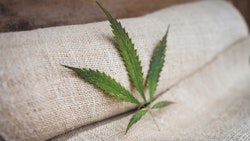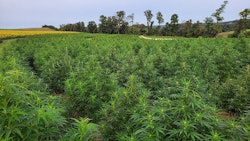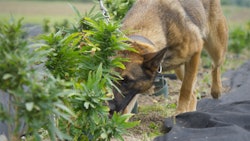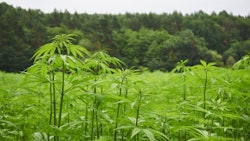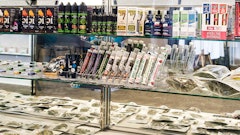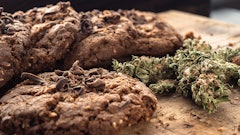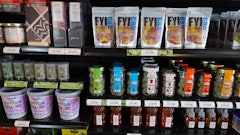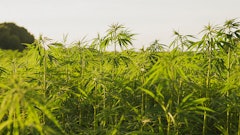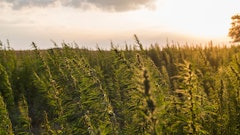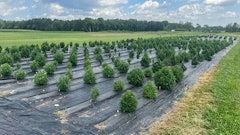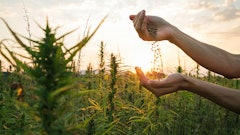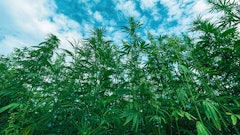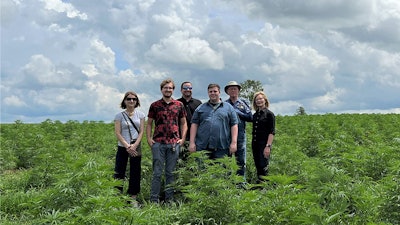
During alcohol Prohibition, Alice Peterson’s maternal grandfather, William Louis Osborn, was a maker of high-quality whiskey stills in the hills of Kentucky. He was a teetotaler—didn’t drink—but worked in an industry that at the time didn’t have any legal or regulatory guardrails in place to ensure product efficacy, so he aimed to ensure that on his own.
That’s a parallel that Peterson draws between alcohol’s Prohibition era and the current state of affairs in the cannabinoid hemp space, in which the U.S. Food and Drug Administration has not yet created regulations.
Peterson is president of Kentucky Heritage Hemp, a hemp grower, processor, extractor and subsidiary of parent company Peterson Farms, a family farm with a rich history, currently growing commodity crops and selling to customers such as bourbon distillers. Kentucky Heritage Hemp sells USDA 100% certified organic CBD and cannabigerol (CBG) biomass, crude extract, full- and broad-spectrum distillates and isolates in bulk; creates custom formulations for customers; and sells to local brick-and-mortar stores. As it awaits FDA regulation, it has worked to ensure product safety and quality, in part by following various practices outlined in third-party certifications.
Moreover, Kentucky Heritage Hemp strives to not only provide product to current industry operators but eventually form partnerships with Fortune 500 companies that are not currently operating in the market.
“We’re trying to be very conscientious; we’re trying to do it right,” Peterson says. “We’re trying to be a thought leader but also an operational leader in the space. But it's hard, because the rules are not clear, because there are so many restrictions about what you can and can’t do. There are so many players in the industry who are not playing by the rules. When you’re up against that, it’s challenging; I’m not going to lie. But I’m very proud that we’re holding our heads up high.”
Family and Farm History
The Peterson family’s farming history dates back to before their ancestors migrated from Holland to North America in the 1600s.
Bill Peterson, Alice’s brother and CEO of Kentucky Heritage Hemp, says the family’s ancestors grew multiple types of vegetables in what was then New Netherland—a 17th-century Dutch settlement in present-day Manhattan, Long Island, Connecticut and New Jersey. “They also grew their own food, so they grew their own potatoes and vegetables and those kind of things from a very, very early time,” Bill says. The farmhouse of those ancestors, the Wyckoffs, remains standing as the Wyckoff House Museum in Brooklyn, N.Y.
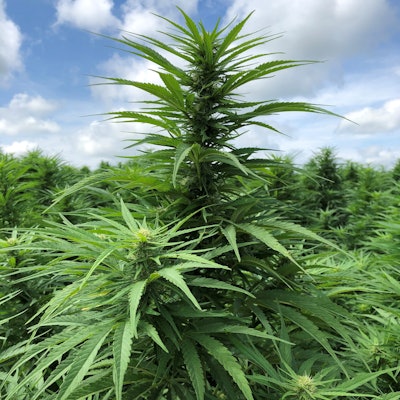
The stories of the family’s more recent past farming and working in Kentucky are more based on lived experiences and conversations with parents, grandparents and other close relatives.
Bill and Alice’s father, William Buckler Peterson, and his six brothers all worked on the family’s dairy farm, Seven Sons Dairy, during their formative years in the mid-20th century.
But, Bill says, “We always had some crops beyond the needs of the animals. … My grandfather did, my dad did, and then as my brother David and I were the first to go to college and the first to come back home, we started more intensely cropping—cropping larger acres beyond the needs of the dairy farm. Eventually our brother Bernard, a fellow graduate of the University of Kentucky ag school, also joined in, and my son Albert now heads Peterson Farms.”
As the family continued to raise and milk dairy cows in Central Kentucky, the 11th generation of farmers in what is now the U.S., William Buckler Peterson and Rose Mary Peterson, and their eight children, including Bill and Alice, began farming their current staple crops: corn, wheat and soybeans.
Peterson Farms sells two of those crops, corn and wheat, to the area’s bourbon industry. Customers include Jim Beam, Pappy Van Winkle and Maker’s Mark.
Loretto, Ky., serves as a headquarters for both Peterson Farms and Maker’s Mark and was where the distiller was founded in 1953. “That’s where they also have their original distillery,” Alice says of Maker’s Mark. “My family has been supplying them for a long, long, long, long time, and we have been the sole supplier of red wheat to them for more than 40 years.”
Although Peterson Farms milked its last cow in 1989, the family honors its dairy history by manufacturing and selling hemp-derived CBD products, such as full- and broad-spectrum tinctures, dog treats, caramels and chocolates under the 7 sons brand. The 7 sons bourbon balls, available in three varieties, also call attention to the partnerships with distilleries.
The family was inspired to join the hemp industry in 2015 by way of a hemp-growing partnership with the Stanley Brothers (founders of Charlotte’s Web) and founded Kentucky Heritage Hemp as a business in 2019, Alice says. The Stanley Brothers connected with Peterson Farms in part after they learned the Kentucky commodity farm won a “Top Producer of the Year Award” from Farm Journal. Alice says the brothers also heard from other connections that Peterson Farms is one of the largest and most successful farms in Kentucky.
“Plus, their Lindorea strain of hemp had characteristics they thought would do particularly well in Kentucky, and they wanted to confirm that on a large scale,” Alice says. “The very first year that we grew for them, we grew for seed and did some R&D, if you will, and then quickly started growing for flower.”
RELATED: How Charlotte's Web is Navigating an Evolving Industry
Setting the Standard
Though the hemp market has been volatile in its early years, Kentucky Heritage Hemp has been focused on quality while it leans on support from Peterson Farms. “Our position has been that we are going to be above reproach in terms of the quality of product that we’re putting out there,” Alice says.
Kentucky Heritage Hemp has multiple organic certifications from the U.S. Department of Agriculture for its various processes. The company’s lab processing facility, where it uses CO2 extraction, possesses Current Good Manufacturing Practices (cGMP) and Kosher certifications, Alice says.
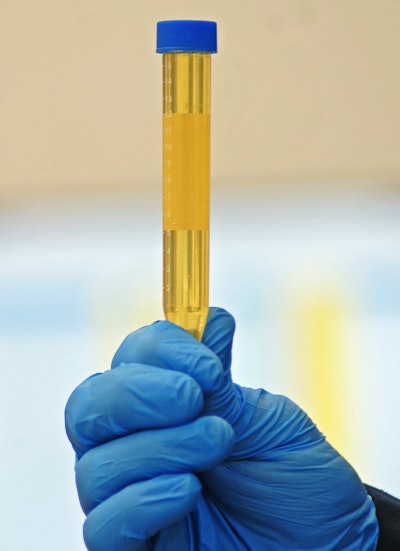
“We are organic all the way through, not just the soil that we grow on,” Alice says. “We have our drying and our grinding operations certified organic. We even have our facilities where we process and extract certified organic. So, we go through many audits, and visit every year from the authorities to maintain those standards.
“It tells our own team, our people, what is required of them. It allows us to communicate with the world, in the absence of an FDA rule, about what we stand for and what we can deliver to them. So, we think it’s extremely, extremely important to have them.”
Kentucky Heritage Hemp’s main business is selling wholesale ingredients to manufacturers across the U.S. The company also sells its 7 sons branded hemp-derived products through e-commerce and at retailers in Louisville and Bardstown, Ky. In addition to using all its own 100% organic CBD, Alice says the brand doesn’t use any preservatives in its products.
Kentucky Heritage Hemp Sales Manager Sam Burney says the business is working on getting to a place where Fortune 500 companies would be interested in partnering. This could be done through the sale of organic isolate cannabinoids such as CBD and CBG, and potentially other ones as well, he says.
“We want to work with the new CBD and hemp companies that place importance on quality and organic extraction, regenerative agriculture and we also want to be a clear fit for companies with a 50- to 100-year history that are trusted brands across the world and want to add cannabinoids as a new product line to their offerings,” Burney says.
Aside from that, there’s plenty the company’s working on, including a contract grow for terpenes and increasing its lineup of cannabinoid hemp products for sales online and in Kentucky stores—all while honoring generations of family farming knowledge and success.










